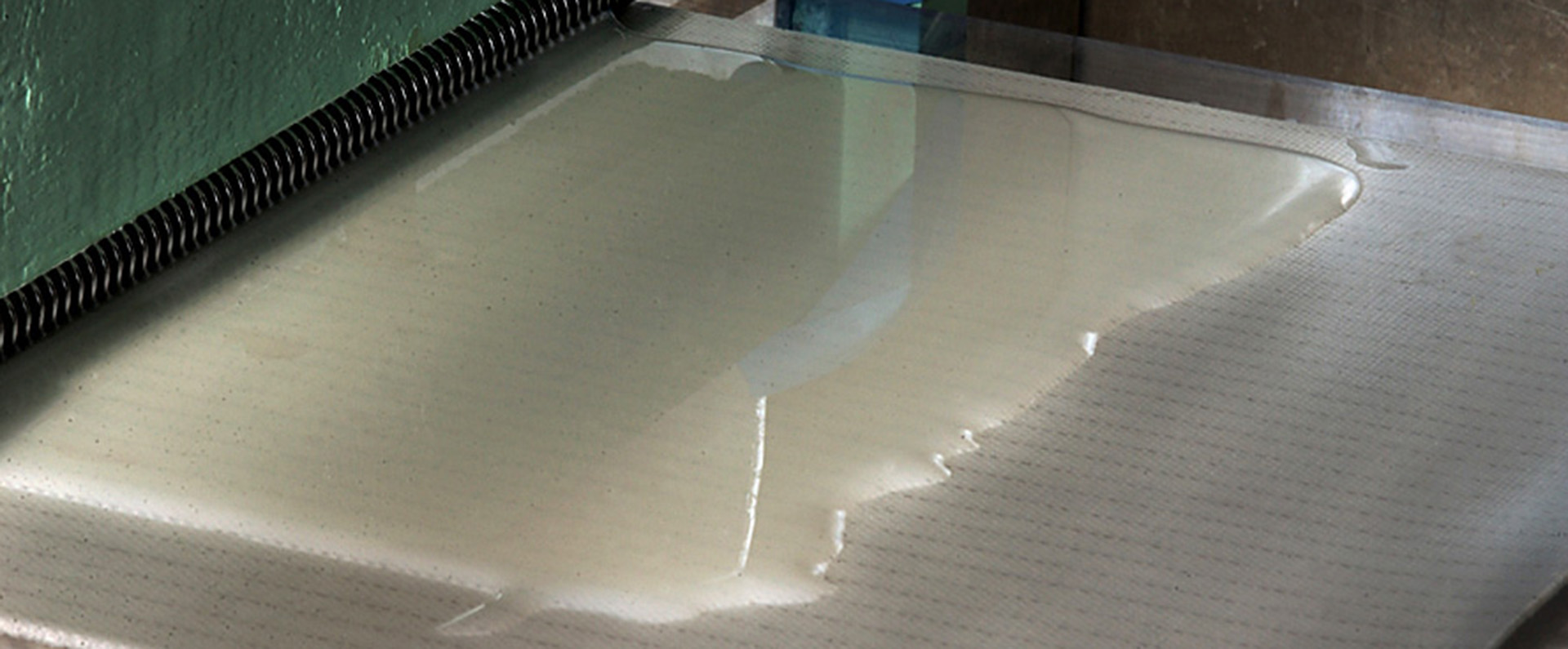That’s a Wrap—and You Can Eat It, Too!
Most foods are wrapped in petroleum-based plastic packaging, which creates a lot of waste that doesn't decompose easily.
ARS scientists have developed a biodegradable edible film from casein, a milk protein, which can be used as a food wrap. It is 500 times better at sealing off food from oxygen, which causes spoilage, than the petroleum-based plastics now being used, so it keeps foods fresher longer.
The milk-based film has a number of potential uses. It can be made into tea-bag-sized pouches that dissolve in hot water to release instant coffee or soup. It can also be formulated for use as a coating for breakfast cereals to keep them crispy in milk, replacing high-calorie sugar coatings used for that purpose.
To make the product, a novel electrospinning technique is used to produce very fine porous mats of casein nanofibers with small diameters but large surface areas. It's because of their large surfaces that the fibers can be formed into films for edible packaging materials. The technique also can be used to introduce intense colors, flavors, or textures within or on foods and can deliver nutrients, such as vitamins and minerals, with the foods.
This new cost-effective, sustainable, biodegradable, environmentally friendly, edible milk-protein film is currently being tested by the Lipton Soup Co. for potential use in the production of various food products.
Related Information
Article: That’s a Wrap: Edible Food Wraps from ARS



